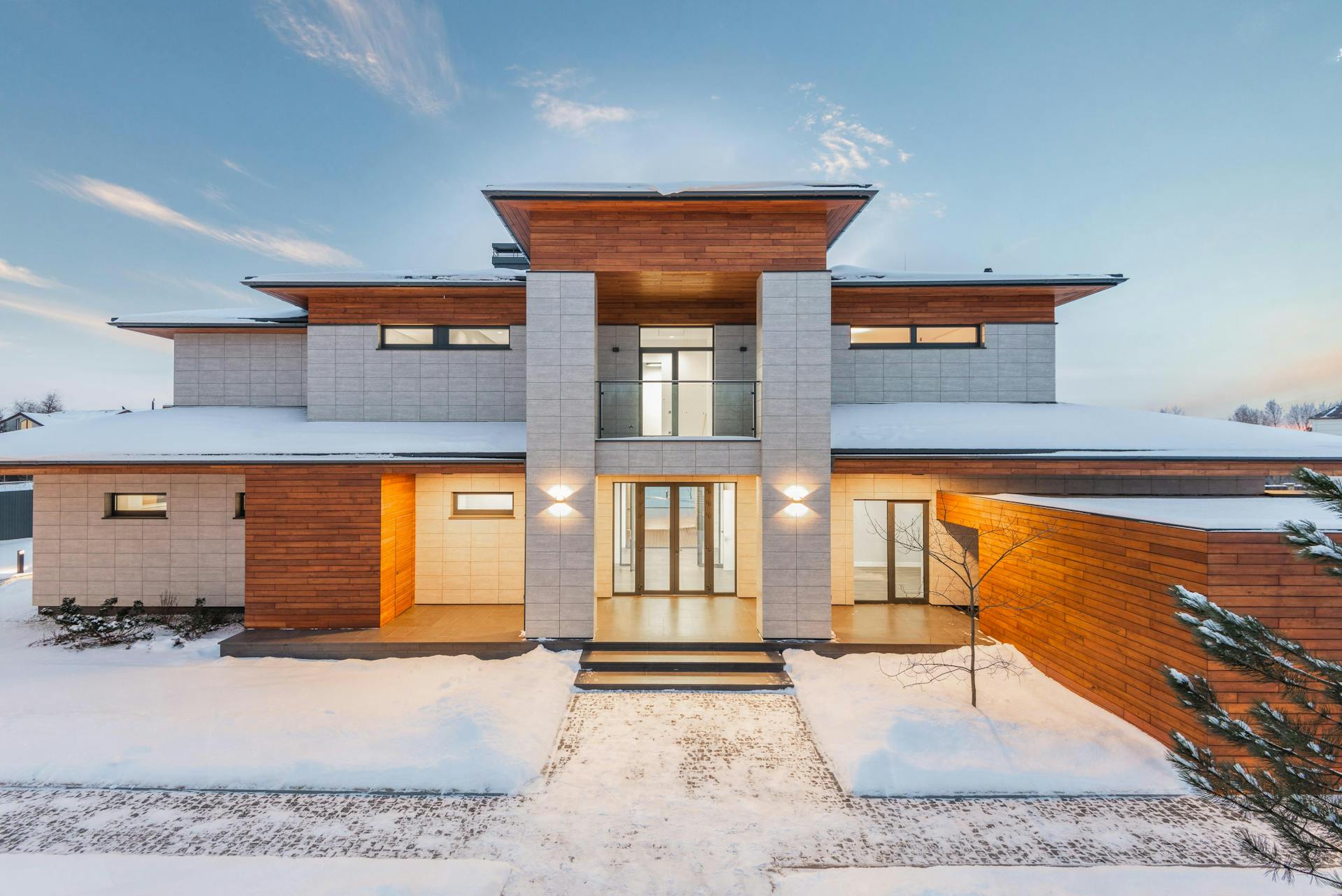
Homeownership marks a significant milestone in everyone's life. It's one of the most precious dreams you'll achieve, but it comes with a set of financial goals to accomplish. With the soaring prices of homes and the ever-increasing interest rates, it's getting tougher by the day to buy a home that matches your budget. But worry not! An adjustable-rate mortgage can make homeownership possible for you.
An adjustable-rate mortgage, also known as ARM, is an affordable financing option that offers lower initial interest rates than traditional fixed mortgages but has its rate adjusted after a specified period. If you're wondering how an adjustable-rate mortgage works, let's explore it in detail.
A fresh viewpoint: Cap Rate
Understanding the Flexibility of an Adjustable Rate Mortgage

An adjustable-rate mortgage, or ARM, is a type of home loan where the interest rate can change over time based on market conditions. Unlike fixed-rate mortgages, which have a set interest rate for the entire loan term, ARMs typically start with a lower interest rate for an initial period before it can fluctuate periodically making your monthly payment either go up or down depending on the current state of the economy. Thankfully taking an ARM loan means you are not stuck with this happening forever.
ARM loans work by allowing borrowers to take advantage of lower interest rates during the initial period while giving them flexibility in their monthly payment afterward. This makes it a great option for those who want to get into a home but may not be able to afford higher monthly payments associated with fixed-rate mortgages. The mortgage rate starting low provides more room for saving and paying off other debts before having to pay larger amounts towards your house.
However, it's important to remember that as market conditions change so will your monthly payment. This means that if interest rates rise, your monthly payment might go up as well. On the other hand if rates go down then your payment will be lower than it was before. Understanding how this works and what options you have when this happens can help you make informed decisions about whether or not an adjustable-rate mortgage is right for you.
1. Fixed- Vs. Adjustable-Rate Mortgages
When deciding between a fixed-rate mortgage and an adjustable-rate mortgage, prospective home buyers need to consider the length of their loan term and their financial situation. A fixed-rate mortgage offers the stability of a constant interest rate, which means that your monthly mortgage payment will stay constant throughout the loan term. On the other hand, an adjustable-rate mortgage has an introductory period with lower initial monthly payments but can result in changing interest rates after that period ends. Ultimately, it is important to weigh the pros and cons of each option before making a decision.
2. See What You Qualify For
If you're a first-time homebuyer looking for an adjustable rate mortgage, it's important to see what you qualify for based on your credit profile and home description. Rocket Mortgage makes the home loan process online easy with their sign-in page where your contact information is securely stored. By simply clicking on the "See What You Qualify For" tab, all the necessary information will automatically pop up. Congratulations based on your qualifications! Don't worry about privacy concerns as they resolve claims related to the Telephone Consumer Protection Act and have a strict privacy policy in place.
Discover If an ARM Mortgage is Ideal for Your Needs

Are you looking to buy a new home or refinance your existing mortgage? If so, you may have heard about adjustable-rate mortgages (ARMs) and wondered if they're right for you. In short, an adjustable-rate mortgage is a type of mortgage with an interest rate that can change periodically over the life of the loan.
If you're considering an adjustable-rate mortgage, it's important to understand that the initial interest rate is typically lower than what you would pay on a fixed-rate mortgage. However, this low rate only lasts for a limited period, usually between one and five years. After that time frame, your interest rate may increase or decrease based on market conditions.
In the meantime, put simply, if you're in a short time frame and need to purchase a house immediately or refinance your current mortgage, an adjustable-rate mortgage can be a smart financial choice because it often requires lower monthly payments during the initial period due to payment caps, which limit how much your monthly mortgage payment can increase each year in dollar terms. However, there is a problem called negative amortization where the required monthly payments don't cover all of the interest due on the loan.
How the Variable Rate on ARMs Is Determined

One crucial aspect of adjustable rate mortgages (ARMs) is the variable interest rate. The variable interest rate reflects the current fluctuating benchmark rate, also known as the index rate, coupled with a fixed margin charged by the lender. When a borrower takes out an ARM, they agree to pay this variable interest rate on their loan balance, which will adjust periodically based on changes in the general state of the economy.
The margin stays constant throughout the life of the loan, but the interest rate adjusts based on changes in the index rate. If the index rate rises, so does the borrower's interest rate and monthly payments. However, if the rate falls, then so will their payments. While ARMs can be a great option for some borrowers looking for lower initial rates or shorter terms, it's important to understand how your mortgage adjusts and what factors could impact your interest rate in order to make informed decisions about your finances.
Is an ARM Worth the Risk? Benefits and Drawbacks to Consider

An adjustable rate mortgage, or ARM, can be a risky choice for home loan borrowers. While the initial interest rate may be lower than that of a fixed-rate mortgage, the rate is subject to change over time, potentially resulting in higher monthly payments. However, an ARM may be worth considering if you plan to only stay in your home for a short period of time or if you expect your income to increase in the future. It's important to carefully consider the benefits and drawbacks before deciding if an ARM is right for you.
1. Pros of an ARM
Lower initial rate ARMs tend to have a lower interest rate compared to fixed-rate mortgages. This means that borrowers can enjoy lower monthly payments upfront, which is especially beneficial for those who plan on selling their home in the near future. Additionally, payment caps and interest rate caps are in place to protect borrowers from sudden spikes in their monthly payments. While fixed-rate loans offer stability, a low-interest ARM can be a good option for those looking to save money on their mortgage payments.
2. Cons of an ARM
One of the cons of an ARM is the potential rise in interest rate after the initial period. This means that if you aren't prepared for a payment increase, you could end up struggling to make your mortgage payments. Additionally, ARMs can have complicated structures with many moving parts that some borrowers may not fully understand.
Disadvantages Of An Adjustable-Rate Mortgage
The adjustable-rate mortgage type can be a good option for some home buyers, but it also comes with potential downsides. The biggest risk is that the interest rate on an adjustable-rate mortgage can change, causing monthly mortgage payments to fluctuate.
If interest rates shift upward, borrowers may face higher monthly payments that they might not be able to afford. This could discourage home buyers who are uncertain about their financial standing from pursuing an adjustable-rate mortgage as an option. It's important to carefully consider the pros and cons of this mortgage type before making any decisions.
Find Out All About Adjustable-Rate Mortgages Here!

If you're looking for a mortgage, you'll want to consider an adjustable-rate mortgage (ARM). An ARM is a type of variable-rate mortgage that has an interest rate that can change over time. Unlike fixed-rate mortgages where the interest rate doesn't change during the loan term, ARMs start with a lower interest rate compared to fixed-rate mortgages.
Loans typically have a predetermined period before the interest rate changes, ranging from one month to several years. After this period, the interest rate adjusts based on market conditions. If rates are low, you enjoy a lower payment. However, if rates increase, your payment will rise as well. ARMs are an excellent option for those who don't plan on staying in their home long-term and want to take advantage of lower rates initially.
Explore Various ARM Loans: Which One is Right for You?

"Explore Various ARM Loans: Which One is Right for You?" If you're interested in purchasing a home, adjustable rate mortgage (ARM) loans might be an option worth considering. There are various types of ARM loans available, each with different terms and interest rates. It's important to understand the benefits and risks associated with each type of loan in order to determine which one is right for you. In this article, we'll explore some popular types of ARM loans and help you make an informed decision about which one to choose.
1. 5/1 And 5/6 ARMs
5/1 and 5/6 ARMs are adjustable rate mortgages with a fixed interest rate for the first 5 years of the loan term. The number refers to how often the rate adjusts after that, either every 6 months for a 5/1 ARM or every 6 years for a 5/6 ARM. Both types have rate caps, including an initial adjustment cap during the 5-year introductory period and subsequent adjustment caps in year 6 and beyond. These arms offer lower interest rates initially but higher lifetime caps, so it's important to completely understand rate cap quotes and how interest rates climb over time to determine if an arm make sense for you and your monthly payments.
2. 7/1 And 7/6 ARMs
7/1 and 7/6 ARMs are adjustable rate mortgages that have an initial fixed-rate period of seven years. After the initial fixed-rate period expires, the interest rate can fluctuate based on changing interest rates, leading to fluctuating payments based on market conditions. These types of loans are typically offered with a 30-year term and can provide lower mortgage payments if interest rates fall, making them a popular choice for homeowners who plan to stay in their homes for less than 23 years.
3. 10/1 And 10/6 ARMs
"10/1 and 10/6 ARMs" are types of adjustable rate mortgages that have a fixed rate for the first 10 years, after which the interest rate can fluctuate based on market conditions. These loans are typically offered with a 30-year term and can lead to changing payments over the remaining 20 years. If you're considering an ARM, make sure to understand the potential risks and benefits of this type of loan before making a decision.
Frequently Asked Questions
Should you consider an adjustable rate mortgage?
An adjustable rate mortgage may be a good option if you plan on selling your home before the interest rate adjusts. However, if you plan on staying in your home for a long period of time, a fixed rate mortgage may be a better choice to ensure stable and predictable monthly payments.
When should you consider an adjustable rate mortgage?
You should consider an adjustable rate mortgage if you plan to sell your home or refinance within a few years, or if you expect your income to increase in the future.
How often does the interest rate change on an ARM loan?
The interest rate on an ARM loan can change as often as once a year or as infrequently as every five years, depending on the terms of the loan. It's important to carefully review and understand the terms of your specific ARM loan to know when and how often your interest rate may change.
What are the dangers of adjustable rate mortgages?
Adjustable rate mortgages (ARMs) can be risky because the interest rates and monthly payments can fluctuate, making it difficult to budget and potentially leading to foreclosure if the rates increase too much. It's important to fully understand the terms of an ARM before signing on.
What are the different types of adjustable-rate mortgage loans?
There are three main types of adjustable-rate mortgage loans: hybrid ARMs, interest-only ARMs, and payment-option ARMs. Hybrid ARMs have a fixed rate for the first few years then adjust yearly based on market rates. Interest-only ARMs let you pay only the interest on your loan for a set period. Payment-option ARMs give you several payment options each month, including a minimum payment that may not cover all the interest due.
Featured Images: pexels.com

